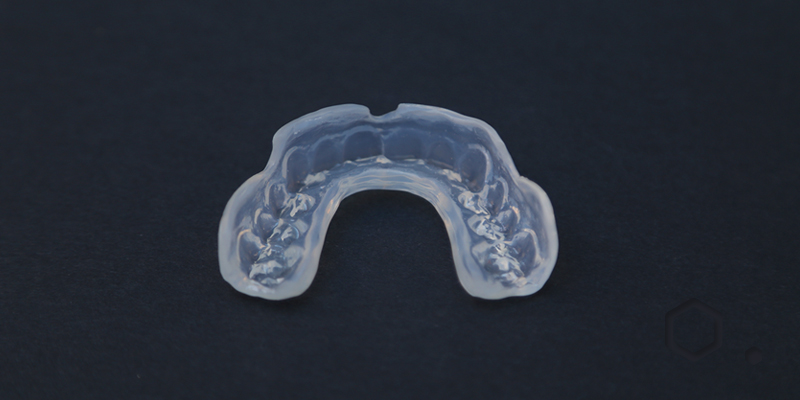Night Guards for Temporomandibular Disorders (TMDs)
By Reza Ghannadan
Occlusal splints, also known as night guards, are utilized frequently in dental practice. They are commonly used to relax jaw muscles, prevent jaw trauma, protect teeth and control headaches.
How well occlusal splints work in treating jaw pain and disorders is another matter. Numerous studies, when taken as a whole, suggest only a modest indication that they are useful.
That said, some splints are useful for certain types of jaw disorders. For example, some people with a disc issue in their jaw may benefit from a certain type of night guard. Others with migraines and headaches may benefit from a different type of night guard. Regardless of the type of jaw disorder, it’s always best to speak with a dentist about the type of night guard that is best for you.
It’s important to note that if you are grinding or clenching your teeth, speaking with a dentist about using an occlusal splint to protect your teeth is very important. An occlusal splint can help protect teeth among those who grind/clench. The last thing you want is to grind your teeth away or potentially break a tooth!
If you are currently dealing with a jaw disorder, then speaking with a physiotherapist with training in treating jaw disorders is also important. A physiotherapist can help diagnose the type of jaw disorder and provide a treatment plan to help your recovery.
Physiotherapy can help with restoring normal movement in the jaw, reducing jaw pain and other associated symptoms (such as headaches and neck pain) and helping you return to normal jaw function, such as eating and opening your mouth. Oftentimes, combining physiotherapy with an occlusal splint is an effective way to manage jaw pain.
If you have any questions about jaw pain/disorders, contact Reza our Physiotherapist at reza@qubecore.com or contact the clinic at 604-210-2274.

